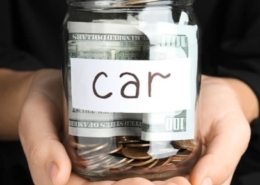How to Choose a Reputable Car Dealership
So you’ve decided it’s time for a new car, new to you at least. Once you’ve researched and narrowed it down to a particular brand, maybe even a specific make and model, have you considered where you will buy the vehicle?
New or used, a car is a significant purchase for most people. Shouldn’t you give a little thought to who gets your money? Here we’ll dive into the thorny topic of choosing where to buy the vehicle. We’ll start by discussing why this matters. We’ll talk about good sources of information and dive into the evaluation criteria you might use.
1) Car Dealerships and Reputation
For nearly as long as there have been automobiles to sell, “car salesman” has been a slang term for someone dishonest. Fair or not, the profession has a poor reputation and probably deserved it in the past.
Unscrupulous car dealers would sell vehicles with hidden problems, charge prices that were too high, or sell unnecessary add-on services to consumers that did not know any better.
Car buying is much better today than just a few short years ago. For one thing, car buyers are much better informed, and second, many car dealers learned long ago that taking advantage of customers doesn’t help build a lasting business.
However, there are still bad apples, and the adage “buyer beware” is as true today as it’s always been. Read more about dealer tricks of the trade in my section on the most common car dealer scams in modern dealerships today.
2) Service After the Sale
You may buy your car and then never visit that dealership again, which means this section doesn’t apply. However, many car buyers, especially those purchasing a new vehicle, will be returning for servicing and warranty work. In other words, this isn’t a one-off transaction you’re signing up for but a relationship.
We’re not advocating a long courtship here, but we suggest this is another factor to consider. You should find out if the dealership keeps convenient hours, if they offer any particular perks or incentives (loaner cars), and if they’re known for doing a good job.
Ask your salesperson to take you on a quick tour of the service department. Ask to see where you are supposed to bring your car (service drive) when in need of service. Also, ask to see their service waiting area and note what accommodations are provided while your vehicle is being serviced.
3) Which Manufacturer Brands Have the Best Reputation?
A good starting point is to learn how individual brands compare. You can do that with the J.D. Power U.S. Sales Satisfaction Index (SSI). This annual survey ranks known brands by the performance of their dealerships. (Note that it doesn’t comment on individual dealerships so that a good brand could have a poor dealership close to you, and vice-versa.).
J.D. Power reached out to nearly 30,000 buyers for the survey. They asked about dealership personnel, the vehicle delivery process, the ease of sale, the paperwork completion process, the overall facility, and the dealership’s website.
For 2017, Buick came top among mass-market brands. Lincoln and Mercedes took joint honors in the Luxury category, with Infiniti and Porsche not too far behind.
4) Assessing Dealership Reputation
After identifying which brands you favor and which to strike from your list, it’s time to weigh up individual dealerships. If you need help locating those close by, the manufacturer’s website will help. Just look for a “Find a dealer” tab or link.
After you’ve narrowed down your selection of dealerships, the following stage is to assess their integrity. There are three options to consider:
- Customer reviews –There are many places to look for reviews online. The best known are probably dealerrater.com, Yelp, and Google.
- The Better Business Bureau (BBB) website for your state –Here, you can look for BBB-accredited dealerships and see if those on your list have many complaints against them. An “A” grade is ideal.
- Longevity –A dodgy dealership won’t usually last long. Word gets out that they’re not to be trusted, and the business folds. Conversely, if they’ve been around for decades, it’s reasonable to assume they get a lot of repeat business. And car buyers wouldn’t return to the dealership that they felt ripped them off.
As with the JD Power SSI, the result of this investigation phase is that you’ll likely cross some businesses off your list. After doing that, you’ll be ready to move on to other aspects of finding a dealer you’ll enjoy working with.
5) Dealership Evaluation Criteria
There are a lot of factors to consider when evaluating a dealership, but for simplicity’s sake, we can group them under four headings:
- Price – Is the dealer willing to negotiate and flexible on pricing – Are they a “one-price” facility?
- Inventory – Does the dealer have the car you’re interested in purchasing?
- Perks – What kind of additional items or services are available from the dealer?
- Facility – Location, hours, shuttle service, loaner vehicles?
a) Price
You won’t know what you’ll pay for your next car until you’re working with a salesperson. However, you can get a sense of how competitive they are by using an online referral service such as Ryde Shopper, Edmunds, Motor Trend, or Cars Direct. Just note the quotes you receive on a few popular models, then compare them with what other dealerships are asking for the identical vehicles. (You may find, for example, that dealerships in less affluent areas have better prices.)
b) Inventory
Most dealerships put their inventory online. You see who has the best choice of vehicles. If you’ve already settled on a particular model, trim, and color, you can also see if it’s available.
I highly recommend that even if you find the perfect vehicle on a dealer’s website. DO NOT make initial contact with them directly through their website. You will still want to go through an online referral service like Ryde Shopper first. Doing so lets the dealer know they’re not the only dealer you’re requesting price quotes from and will also encourage them to provide you with a better upfront price. When using an online referral service, make sure you select all the dealers available to get the most quotes in hand.
If the dealership you want to work with doesn’t have the exact vehicle you’ve selected, they can almost always get it for you. Dealers often trade inventory with other dealerships (especially if they’re part of a larger group,) but it may take a few days to get the car you want. Alternatively, if they have to order it from the factory, you could be waiting weeks or even months in the case of popular models.
c) Perks
Many dealerships will offer “freebies” to sweeten the car purchase deal. Of course, they’re not free, but you should still consider them when car shopping. Some of the most common are:
- “Free” or “included” essential maintenance such as oil changes and tire rotations.
- Carwashes. Some will wash your car after servicing it; others won’t.
- Loaners. Some dealerships will loan you a car while yours is in for servicing.
d) Facility
There’s a lot to consider under this heading, but you might start with location. Assuming you’ll be going back for servicing, it helps to find a dealership not too far from home or where you work. A lower price at a dealership two counties over might outweigh the time and expense of getting there. (Bear in mind that you don’t have to get your car serviced by the dealership that sold it.)
Other essential factors to consider are:
- Opening hours. Do they have an early drop-off time? Are they open late one or more nights each week?
- Shuttle services. Will they run you home or to work? How far will they go?
- Is there a waiting room? It can be easier to wait for a relatively quick job like an oil change than take the shuttle home and then call for a ride back. If they have a waiting area, is it clean and comfortable? Is there complimentary coffee and WiFi? (If yes, you might be able to work while you wait.)
- Do they seem too pushy? Yes, they’ve got a business to run, but do they constantly push additional services? If so, you might prefer to take your business elsewhere.
6) Choose a Car Dealership You Want to Buy a Car From
When buying a new car, it’s the vehicle that’s key to your decision, but you should also feel comfortable with the people you’re buying it from. You want to ensure they’re not taking advantage of your good nature and that they’ll be there to help if you run into problems.
Most car dealerships are honest these days, but the onus is on you to check them out. The internet makes it easy to learn what experience other car buyers have had, and you should supplement that with your own eyes, ears, and questions. Choosing wisely helps ensure your car purchase goes smoothly and you get the after-sales service you want.
Before Buying a Car Anywhere
The number one tip for saving the most money when buying a new or used car is always to take your time and “DO YOUR RESEARCH FIRST!” For more strategies on navigating the new and used car buying process, spend a little time upfront before beginning your car shopping adventure by browsing through my 100% free online car buying guide – AutoCheatSheet.com.
I recommend using an online referral service such as Ryde Shopper, Edmunds, Motor Trend, or Cars Direct before physically walking into a car dealership. Their free online price quotes will automatically include any discounts or cash-back incentives currently available in the marketplace. This information will help level the playing field with the dealer and let you know which dealers are willing to be more flexible on price.














